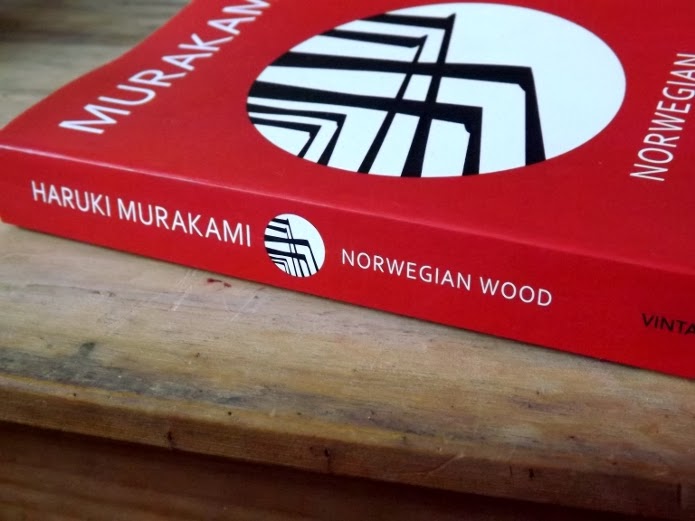Thoughts on Murakami’s Norwegian Wood

Hailed as Murakami’s defining novel that had become so popular in Japan that it forced him to retreat deep inside European retreats in Greece and Italy, it somewhat came as a surprise that I read Norwegian Wood so late in my career as a reader of fiction.
I bought it at a tremendously discounted price at Mumbai’s glorious Flora Fountain and started digging into it on my bus ride back home. It strung strings deep, deep inside. That’s the beauty of it, Toru Watanabe is so ordinary and plain that there is some of him inside each one of us, though I can’t be bothered with alcohol and women in the same way.
I am sure the book is autobiographical to a large extent (a point heatedly debated by Murakami) but my point is, which work of fiction isn’t? After all, fiction is fragments of reality, sometimes a few, sometimes several, woven together using the threads of imagination. The proportion between the real part and the imagined part varies, but the underlying composition is the same thus making way for genres in fiction.
It was three quarters an hour past midnight earlier today when I had promised myself I’d read just a chapter and then sleep. I slept at a quarter to five in the morning, after having finished the book. In that time, I had read the book cover-to-cover, re-reading several parts of it and just, on the whole, had let myself be swept away by Watanabe’s endearingly dispassionate detachment. It is addictive, this book, one of the few where you can open any page and read till any other, and still walk away with a lot of understanding and clarity. No wonder it swept the Japanese youth off their feet back then, no wonder it propelled Murakami to such stardom.
As to my thoughts on the characteristically cryptic ending- all along, for Watanabe, the memory of Kizuki’s death-by-suicide haunts him, leaving him convinced that death is but something you wake up and stare at everyday and not a distant harsh truth as often misconstrued. He is, however, convinced that it is an invisible face that Death has and not a living, breathing and dying one. To me, Naoko is the death Watanabe refers to, the death that is a part of life, the death we nurture by living our lives. She is always there- teetering on the edge of the wall separating the existing from the existed, a place Watanabe unknowingly gets sucked into because of his love for her.
Till the moment she passes away, Toru always had death with him in the form of his memories of Naoko, giving him that detachment from life in general on account of his pull towards something that was dying.
Which is why, in the end when Watanabe calls Midori and doesn’t know where he is, it represents that he is unfamiliar with the concept of life wholly devoid of death’s baleful gaze. Midori represents that spark of life which is the only thing that can light Watanabe’s way out of the dark tunnel of the dead and the long gone.
Norwegian Wood will always hold a special place in my head- it was every bit more magnificent than I had ever expected it to be. It was as naked and simple as life generally is- no grand plots, no groundbreaking ideas and other such things. It’s beauty lies in its honesty and in its lack of internal bias or favour for after all, the mills grind slowly and steadily for us all.